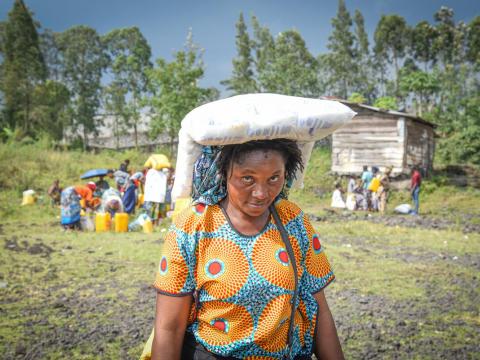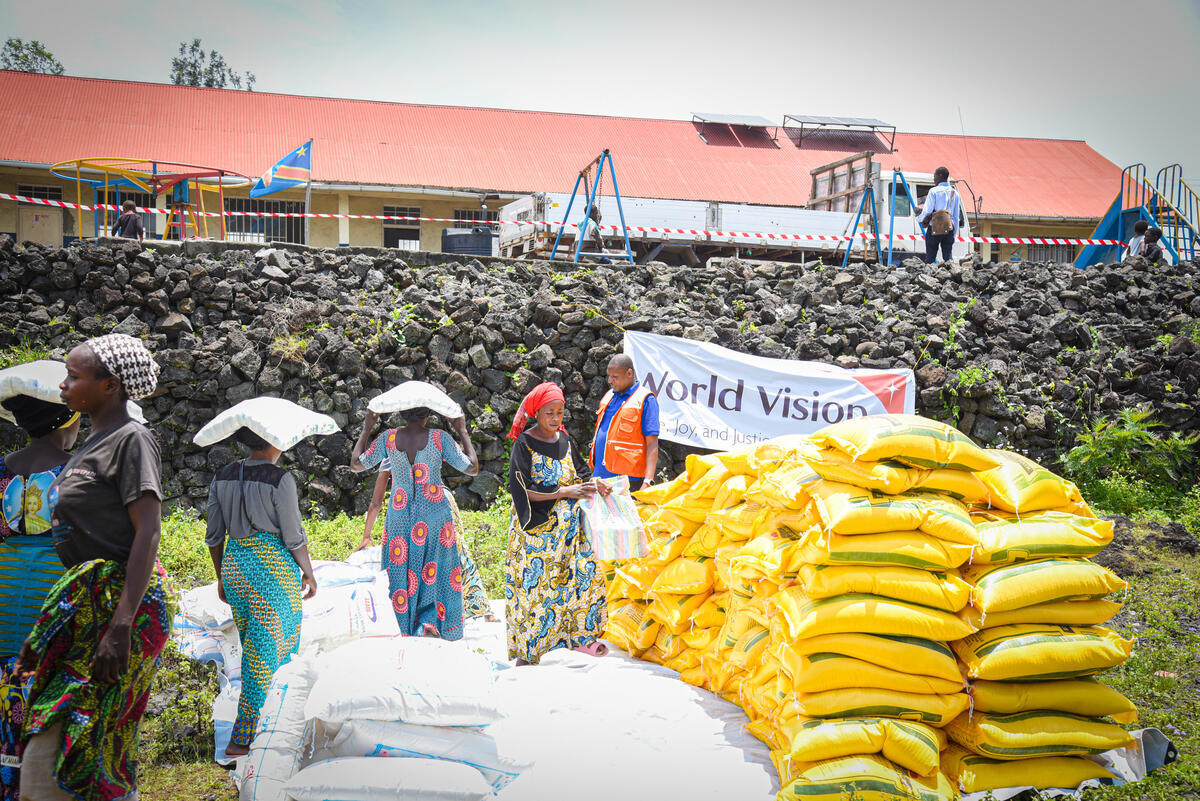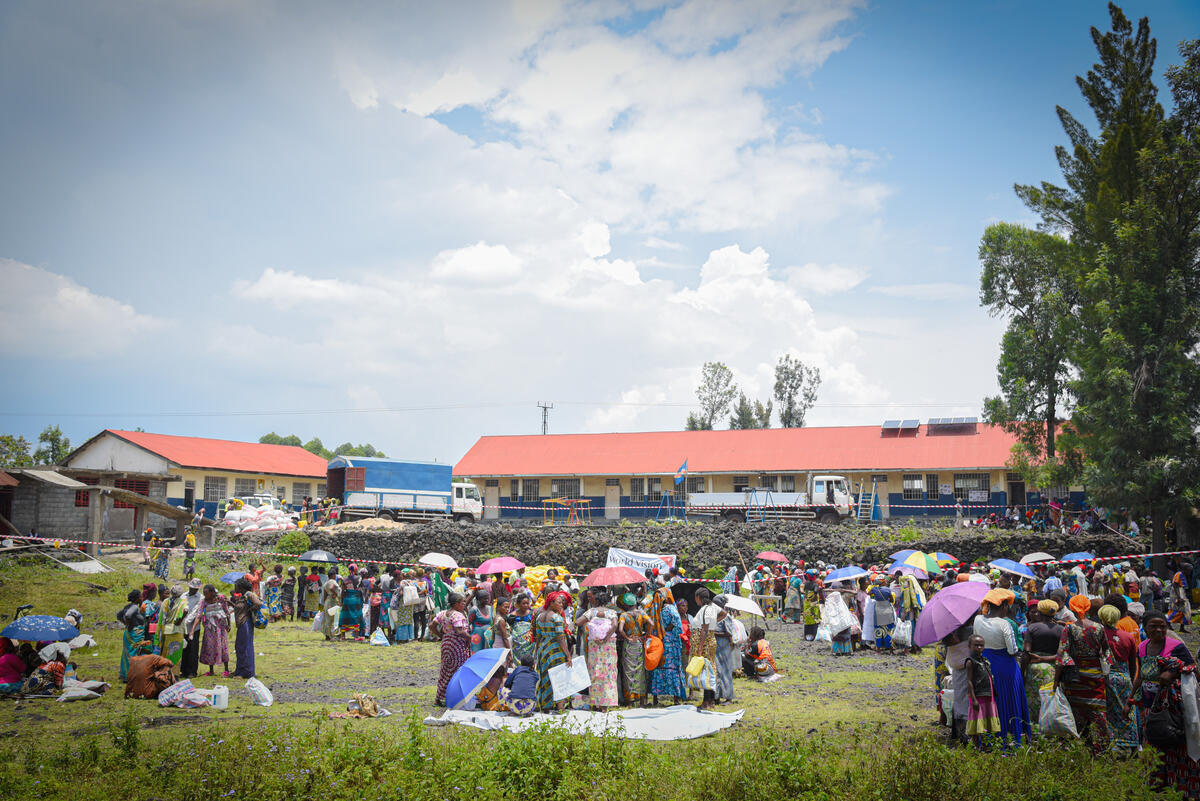World Vision's commitment to the war-displaced in the DRC through the childhood Rescue Programme: A story of hope and resilience

The M23 conflict in the east of the Democratic Republic of Congo (DRC) has forced thousands of people to leave their homes. This is where World Vision comes in, offering essential support to the displaced. The testimonies of Tumaini Chiko, a mother of six, and Ignace Ngwasi, head of the 'Childhood Rescue' programme in the DRC, illustrate the transformative impact of this aid.
Tumaini Chiko: A Mother’s Journey
Tumaini, president of the savings and credit group S4T (SOCIAL), fled the war from February 2023 to today, March 2024. Despite the hardships of war, she describes the joy and hope she feels thanks to the help of World Vision. The organisation has enabled her to set up a small business, a crucial step towards self-sufficiency. With the help of World Vision, she has been able to market food products, meeting needs not covered by humanitarian aid.

Empowerment Kits for Women
The distribution of empowerment kits to women who have set up S4T groups is one of the project's main activities. These kits, which are different from the general distribution of food for consumption, are designed to get small businesses up and running. In this way, the women can generate profits, have working capital, save and take out loans within their groups for various projects and needs.
Impact and Responsibility
This initiative has already benefited more than 400 women heads of household, with a direct impact on 2,500 dependents. Ignace underlines the importance of this aid: "Faced with the influx of displaced families who have taken refuge outside the city of Goma, we have found it best to migrate certain activities to this region, where humanitarian needs are becoming more and more numerous. This is how we intend to implement our economic empowerment project. Women who are truly responsible for their families".
World Vision's Childhood Rescue programme focuses on the S4T approach, which helps communities adapt to a new life. This approach can even lead them to a life of prosperity despite the difficulties they face.

In conclusion, World Vision's involvement with people displaced by the M23 conflict in the DRC illustrates how humanitarian aid can go beyond survival. By investing in the economic potential of individuals and communities, World Vision is helping to create a sense of resilience and hope, enabling people like Tumaini to rebuild their lives and look to the future with optimism.
As the conflict continues, the organisation will continue to support these families, implementing economic empowerment projects and continuing to rebuild lives. World Vision's work in the DRC demonstrates that even in the most difficult situations, hope, adaptation and resilience can emerge